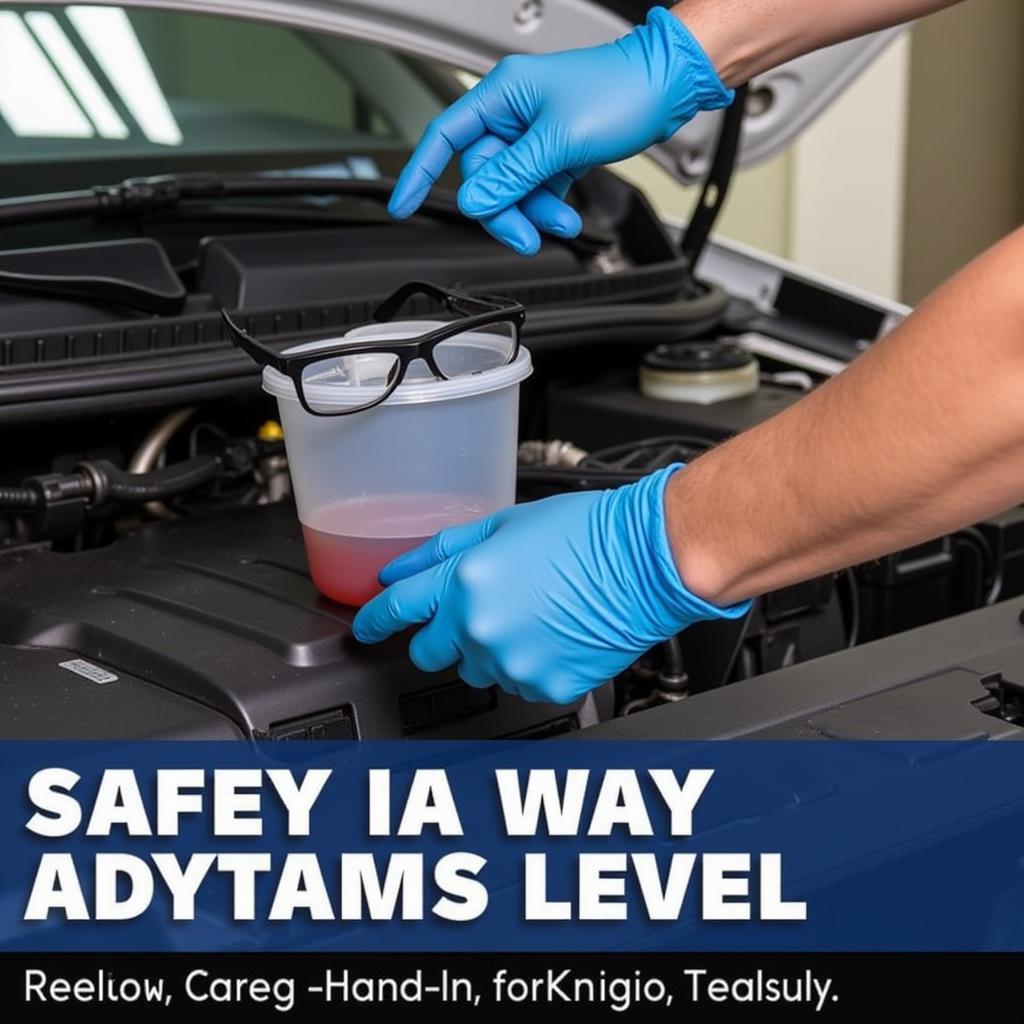Engine overheating is a serious issue that can cause significant damage to your car. Whether you’re a car owner, mechanic, or automotive technician, understanding the causes and solutions for car problems engine overheating is crucial. This guide will delve into the common reasons why your car’s engine might be overheating, offering practical advice for diagnosis and repair.
Overheating can stem from a variety of issues, from low coolant levels to a malfunctioning thermostat. Ignoring these problems can lead to costly repairs, including a warped cylinder head or a cracked engine block. Timely identification and addressing the root cause is essential to maintaining the health and longevity of your vehicle’s engine.
Identifying the Symptoms of an Overheating Engine
Recognizing the signs of an overheating engine is the first step towards preventing further damage. These signs can include:
- A high-temperature reading on your dashboard gauge.
- Steam emanating from under the hood.
- A sweet, burning smell.
- Unusual noises coming from the engine.
If you notice any of these signs, pull over immediately and turn off the engine. Continuing to drive with an overheating engine can exacerbate the problem and lead to more serious damage. Similar to common car problems in the cold, overheating can also lead to significant performance issues.
Common Causes of Car Problems Engine Overheating
Several factors can contribute to car problems engine overheating. Some of the most common culprits include:
- Low Coolant Levels: Coolant is essential for regulating engine temperature. A leak in the cooling system or simply neglecting to top off the coolant can lead to overheating. Regularly check your coolant levels and address any leaks promptly.
- Faulty Thermostat: The thermostat regulates the flow of coolant through the engine. A stuck thermostat can prevent coolant from circulating properly, causing the engine to overheat.
- Malfunctioning Water Pump: The water pump circulates coolant throughout the engine. If the water pump fails, the coolant can’t circulate, leading to overheating.
- Clogged Radiator: A radiator clogged with debris or mineral deposits can restrict coolant flow and cause overheating. Regular flushing and cleaning of the radiator are essential for preventing this issue.
- Broken Radiator Fan: The radiator fan helps dissipate heat from the radiator. A broken fan can significantly reduce cooling efficiency, especially at low speeds or when idling. This is especially relevant in hotter climates. Just like car problems engine overheating anti freeze, neglecting your radiator can lead to bigger problems.
What To Do When Your Engine Overheats
If your car’s engine overheats, take the following steps:
- Pull Over Safely: Find a safe place to pull over and turn off the engine.
- Let the Engine Cool: Do not attempt to open the hood immediately. Allow the engine to cool down for at least 30 minutes.
- Check the Coolant Level: Once the engine has cooled, carefully check the coolant level in the reservoir. If the level is low, add coolant (or water in an emergency) slowly to avoid thermal shock. This ties in with common issues addressed in resources like herbie the love bug car problems, where understanding fluid levels is crucial.
- Check for Leaks: Inspect the cooling system for any visible leaks. Look for puddles of coolant under the car or signs of leakage around hoses and connections.
- Seek Professional Help: If you cannot identify the cause of the overheating or are uncomfortable working on your car, seek professional assistance. This is especially important if you suspect a major component like the water pump or thermostat has failed. For complex issues, it’s better to consult experienced mechanics. You can learn more about pervasive car issues at car with the most problems.
 Car engine overheating checking coolant
Car engine overheating checking coolant
Preventing Engine Overheating
Regular maintenance is key to preventing car problems engine overheating. This includes:
- Regularly checking and topping off coolant levels.
- Flushing and cleaning the radiator.
- Inspecting hoses and belts for wear and tear.
- Having the cooling system professionally inspected at regular intervals. This is particularly helpful for catching potential problems early on, like those discussed on hadugtgt car engine problem.
Conclusion
Car problems engine overheating can be a serious issue, but by understanding the causes, symptoms, and preventative measures, you can protect your engine from damage. Regular maintenance and prompt attention to warning signs are crucial for maintaining the health of your vehicle. If you experience persistent overheating problems, don’t hesitate to contact AutoTipPro for expert advice and assistance at +1 (641) 206-8880. Our office is located at 500 N St Mary’s St, San Antonio, TX 78205, United States. We’re here to help you keep your car running smoothly.




Leave a Reply